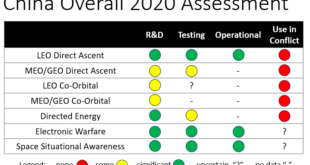Remote sensing allows us to capture and analyze information about landscapes without physical contact. One of the most powerful tools in this domain is LIDAR (Light Detection and Ranging), an optical remote sensing technology that uses light pulses to measure distances and map structures. LIDAR has evolved significantly, offering breakthroughs …
Read More »Marine Batteries: Powering the Oceans
The marine industry is undergoing a significant transformation, driven by the global push toward sustainability and the demand for cleaner, more efficient power sources. Central to this revolution is the development and deployment of advanced marine batteries, which are rapidly becoming the backbone of modern boating, from recreational vessels to …
Read More »The Military Transport Aircraft Market: Navigating the Future of Global Airlift Capabilities
In an era defined by rapid technological advancements and shifting geopolitical dynamics, the military transport aircraft market stands as a cornerstone of global defense infrastructure. These aircraft are not merely tools of transportation; they are the lifelines of modern military operations, enabling the swift and efficient movement of troops, equipment, …
Read More »Building a Greener Future: Biocement, Bioconcrete, and the Rise of Biomanufacturing
The construction industry, responsible for 8–10% of global CO₂ emissions, faces a reckoning. Concrete and steel—cornerstones of modern cities—are both environmental liabilities. Cement production alone generates 2.5 billion tons of CO₂ annually, while steelmaking guzzles energy at scorching temperatures. These materials also degrade over time, crumbling under stress, weather, and conflict …
Read More »Smart Technology in Realistic Battle Reactions: Simulating Sudden Engagements with 3D Mannequin Targets
The landscape of military training is undergoing a dramatic transformation, driven by advancements in technology. At the forefront of this revolution are smart targetry systems, which are redefining the way soldiers are prepared for the complexities of modern warfare. In the evolving landscape of military training, realism is paramount. Soldiers …
Read More »China’s Escalating Space Militarization: Assessing Destructive ‘Counter-Space’ Capabilities and Weapons Advancements
Introduction Space, once regarded as the final frontier for exploration, scientific research, and international cooperation, is undergoing a transformative change. Space has become a critical domain for global security, communication, and scientific exploration. Recent years have witnessed mounting concerns over the militarization of space by various nations, with China’s rapid advancement …
Read More »Europe’s Drive for Defence Self-Sufficiency: The European Defence Industrial Strategy
The European Union’s (EU) defence landscape has undergone a seismic shift in recent years. The backdrop of geopolitical tensions, particularly Russia’s invasion of Ukraine, has underscored the continent’s strategic vulnerabilities and the imperative to bolster its defence capabilities. In response, the EU unveiled its European Defence Industrial Strategy (EDIS) in …
Read More »IN-SPACe: India’s Gateway to Private Space Exploration
The Indian National Space Promotion and Authorization Centre (IN-SPACe) stands at the forefront of India’s burgeoning space sector, serving as the key facilitator for private space exploration and commercialization. Established in 2019 under the Department of Space, Government of India, IN-SPACe’s mission is to promote and regulate the participation of …
Read More »Propulsion Technologies for Molecular Robotics: Powering the Nano World
Molecular robotics, the field dedicated to engineering machines at the molecular scale, holds transformative potential across various domains. However, one of the most significant hurdles in this realm is devising effective propulsion methods for these minuscule machines. Unlike traditional robots that use wheels or propellers, molecular robots require innovative propulsion …
Read More »DARPA Atmospheric Water Extraction (AWE): Revolutionizing Water Supply for the Warfighter
The supply of potable water to warfighters in the field is not just a logistical challenge—it’s a critical factor that impacts mission success, safety, and operational flexibility. Historically, the transport of water has incurred significant economic costs, tactical limitations, and, tragically, avoidable casualties. For instance, during Operations Enduring Freedom (OEF) …
Read More » International Defense Security & Technology Your trusted Source for News, Research and Analysis
International Defense Security & Technology Your trusted Source for News, Research and Analysis

